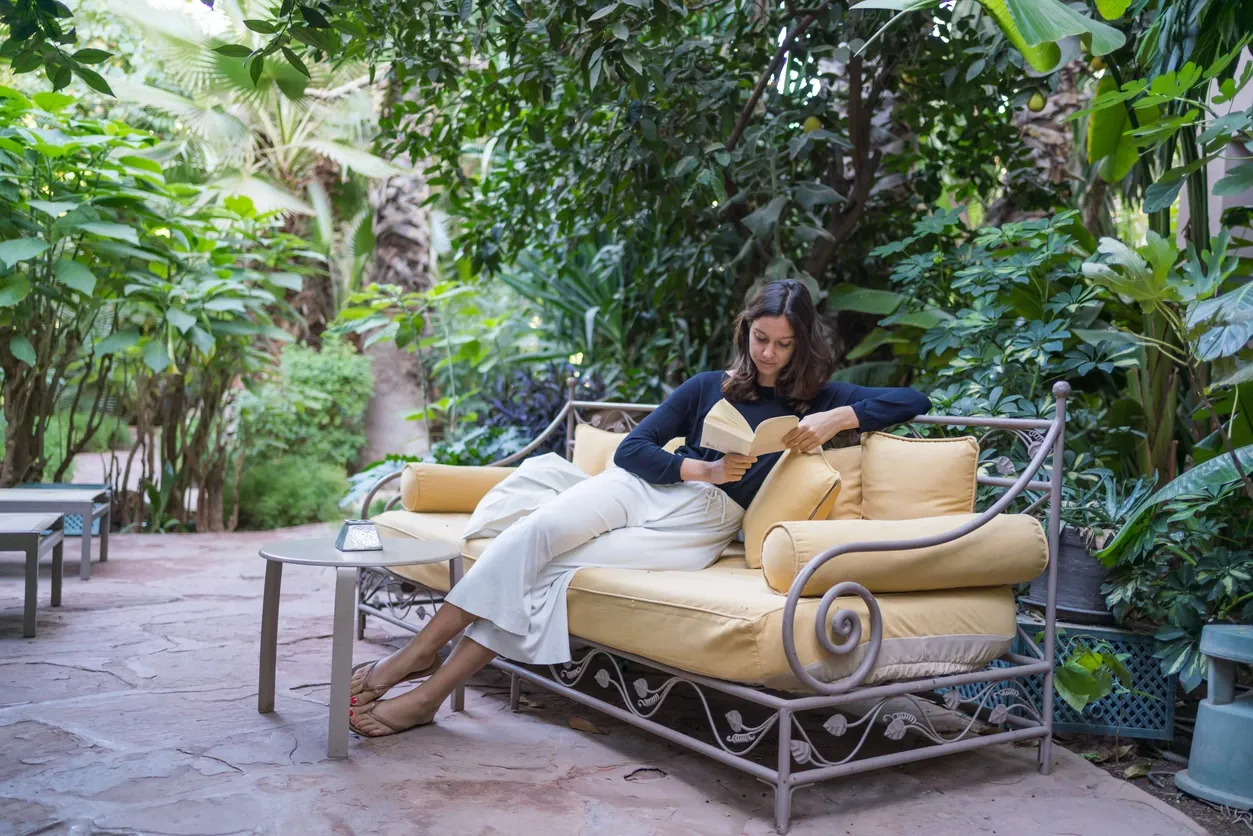The different types of travel guides for Morocco
When it comes to travel guides, several formats come to mind. From traditional books to modern apps, each type of guide offers distinct advantages for exploring Morocco on your own or with a guide. Practical information is presented in a clear and concise way, enabling you to plan your stay efficiently.
The most popular are still the classic printed guides, renowned for their wealth of detail and ease of consultation without an Internet connection. However, mobile applications are gaining ground thanks to their regular updates and interactive features such as GPS maps.
Here are just a few categories of guides available on the market:
- Pocket guides: Practical and lightweight, ideal for a quick introduction to Morocco's cities.
- Cultural guides: Focused on history and culture, ideal for those who want to explore in depth.
- Mobile applications: Updated regularly with customizable itineraries based on your interests.
Tips for choosing the right travel guide
Choosing the right guide depends on your travel preferences. If you plan to visit mainly urban sites, a pocket guide with detailed city maps may suffice. On the other hand, if you want to immerse yourself in natural landscapes, a guidebook containing topographical information will be more appropriate.
Remember also to check the date of publication: a recent guide guarantees up-to-date information on crucial aspects such as attraction opening times or local transport fares.
Discover Morocco's must-see places
Speaking of must-sees, Morocco doesn't disappoint. Each region has its own personality, offering unique experiences ranging from the lively vibrancy of Marrakech's souks to the tranquil dunes of the Sahara.
For those who wish to maximize their trip to Morocco, here is a non-exhaustive list of places not to be missed:
- Marrakech: The red city seduces with its vibrant atmosphere and colorful markets.
- Fès : Known for its labyrinthine medina and local crafts.
- Chefchaouen: The charming blue city nestled in the Rif mountains.
- Sahara: Offering unforgettable camel expeditions under starry skies.
Cultural activities to enrich your stay
In every town and village there's an opportunity for cultural exploration, whether it's observing an ancient mosque or sampling traditional dishes. Among the must-do activities, attending a Gnawa dance performance or an Andalusian music concert will open doors to the artistic soul of Morocco.
Don't forget to visit the local museums to delve deeper into the country's historical and cultural heritage. From Fez to Casablanca, each museum tells a unique story about the evolution of this captivating nation.
Accommodation options: from traditional riads to modern hotels
Accommodation in Morocco ranges from the luxurious to the rustic. Visitors seeking to soak up the local authenticity often opt for a stay in a riad, a traditional house restored as a guesthouse.
Enjoying a warm, personalized welcome is an integral part of the experience; small, shady courtyards and magnificent mosaics add to the riads' undeniable charm.
For those who prefer modern comforts, the country also boasts top-of-the-range hotels offering every possible amenity. Discover below some of the comparative advantages of typical accommodations:
| Hosting | Benefits | Disadvantages |
|---|---|---|
| Riad | Authenticity, traditional decor, friendly atmosphere | Less modern in some departments |
| Hotel | Modern comfort, luxurious facilities | Less local character |
Recommended routes for exploring the country
Planning a well-thought-out itinerary will enable you to make the most of your Moroccan exploration. There are a variety of possible routes, depending on the time you have available.
A popular tour starts in Marrakech, before venturing south to admire the majestic Kasbahs, then venturing into the desert and back up to Fez and Meknes. This itinerary perfectly combines desert adventures and historical treasures.
Key points to consider when planning a trip
Divide your trip into three main sections to avoid travel fatigue:
- Coast and beaches: Enjoy the Atlantic coastline and visit Essaouira, a popular destination for its beaches and Portuguese architecture.
- Dunes and oases: Merzouga is a must if you want to see the great dunes of Erg Chebbi.
- Imperial cities: Explore Rabat, Fez and Marrakech, each offering unique experiences in crafts, architecture and gastronomy.
Tips and tricks to make the most of your stay
To ensure that your experience in Morocco goes off without a hitch, here are a few practical tips and tricks that could make all the difference.
First of all, be sure to check the validity of your passport and find out about visa requirements (if any) well in advance. And don't forget to learn a few phrases in Arabic or Berber: there's nothing like human interaction to enrich an adventure!
The importance of travel and health insurance
Taking out travel insurance covering both medical accidents and possible cancellation problems is highly recommended. Consult different offers to select the one that best covers your Moroccan holiday.
It is also advisable to consult the current medical recommendations concerning the vaccinations required for this destination before you leave.
Frequently asked questions about discovering Morocco
When is the best time to visit Morocco?
The climate varies enormously from region to region. However, spring (March to May) and autumn (September to November) generally offer pleasant temperatures suitable for a wide range of tourist visits.
What means of transport are recommended in Morocco?
Trains remain a popular option for intercity travel, thanks to their comfort and reliability. To explore the countryside in depth, consider renting a car, which will provide greater flexibility in the face of varied landscapes.
Can I drink water straight from the tap?
It is generally not advisable to drink tap water in Morocco. It's best to buy bottled water to avoid any health risks linked to territorial microbiological differences.
What about dress standards?
Although Morocco is relatively tolerant of tourists, it is respectful to dress modestly. This means wearing long sleeves and avoiding revealing outfits when visiting religious or rural sites.

